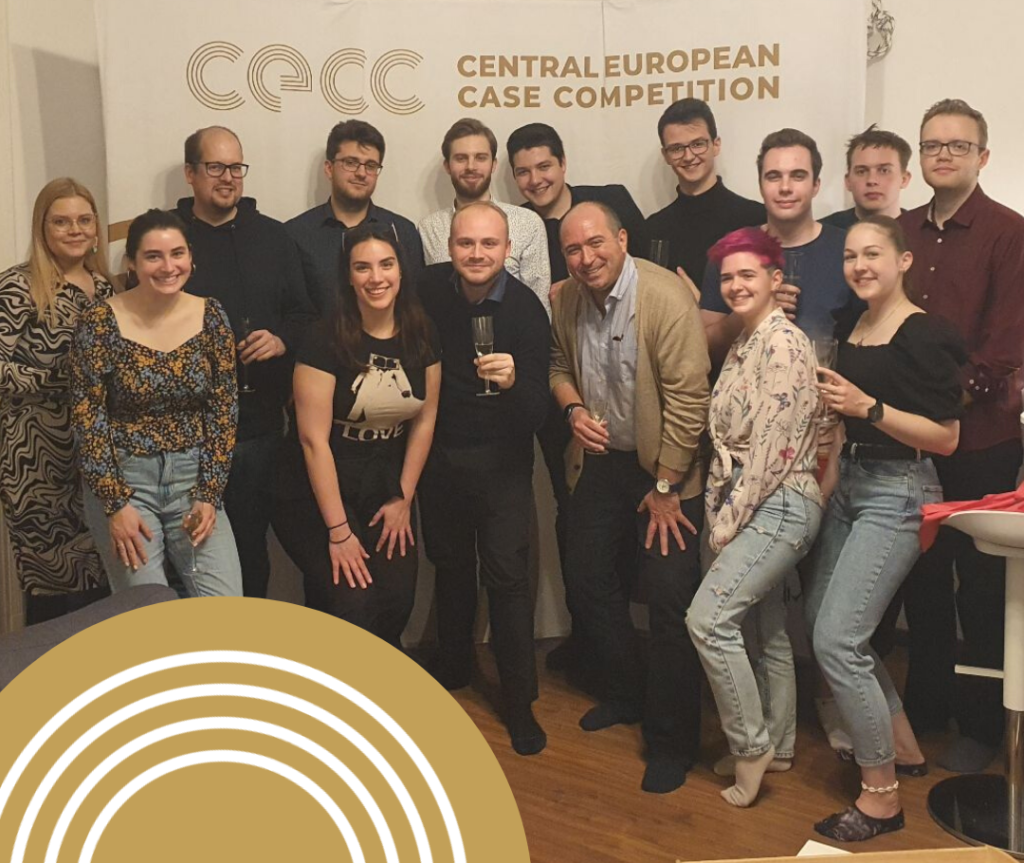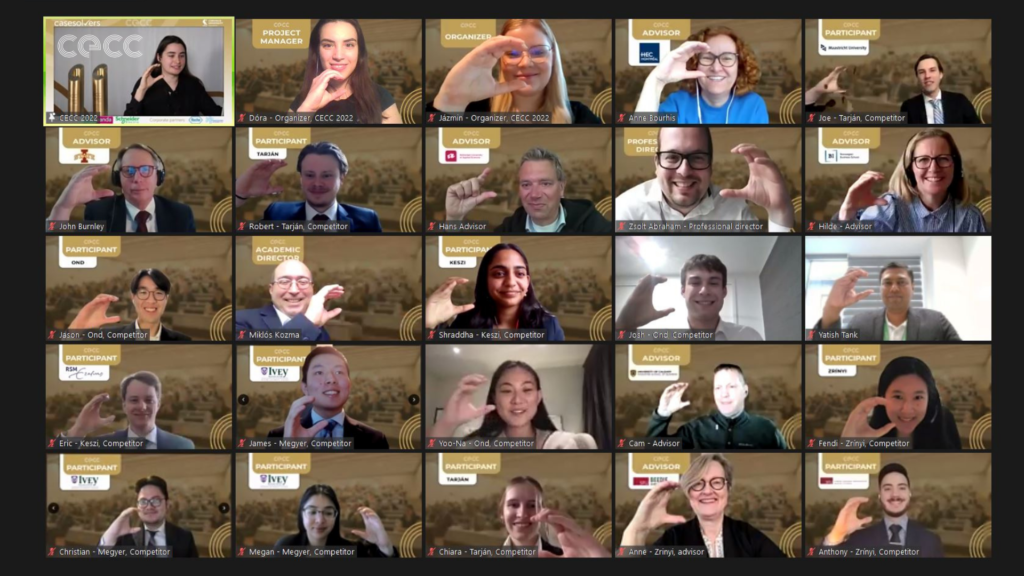The 4th Central European Case Competition @Corvinus 2022 ended with a two-time victory in Melbourne

“CECC has three fundamental values and principles: co-opetition, excellence in learning and developing the region’s global representation.” – describes the event Miklós Kozma, head of the Academic Committee of the competition, associate professor of Corvinus University.
As part of the event, 4-person teams solved a six-hour and a twenty-four-hour business strategy case study focused on the real and relevant challenges of companies operating in the region. After the case was solved, the teams also had the opportunity to present their complex solutions to a professional jury panel. The main motive of the competition was innovation, which also determined the topic of the two business strategy case studies.
“The event brings together high-performing students from the best business schools around the world. This year, 20 international competition teams from 9 different countries on 4 continents participated. ” – said Zsolt Ábrahám, CEO of Case Solvers and author of the business case studies.
The six-hour case study was provided by Foodpanda
The task was about innovations that can be incorporated in Hungary as well. The teams had to focus on developing business strategies and business models based on the Logistics-as-a-service model, taking into account market trends in quick commerce.
On Saturday, the contestants presented their solutions. First, the members of the expert jury panel evaluated the solutions in the division semi-final. In the finals, the top 5 teams competed. Bence Blaumann, the Director of Logistics involved in the field of the case, represented the Foodpanda team. “Thank you to all the teams for participating, we were able to come across a number of exciting initiatives and ideas. I was very pleased with the participants, it was really inspiring how far they had come in just 6 hours. ”
The winning team came from the University of Melbourne, but Simon Fraser University of Canada and the team of Ivey Business School also won top places.
The twenty-four-hour case study was provided by Schneider Electric
The teams worked on strategies to maximize the sustainability impact of Schneider Electric through supply chain and product portfolio innovation.
On Tuesday, the contestants presented their solutions. At Tuesday’s final, Schneider Electric’s Director of Purchasing, Dan Bartel, also greeted the participants: “In my own experience, this is a great opportunity to develop students analytical, problem-solving, communication and presentation skills.”
In the final, the top 5 teams competed. During the assessment of the cases, Yatishkumar Tank, Vice President of Purchasing for the Global Supply Chain, also represented the Schneider Electric team and met with interesting solutions. “Sustainability is a top priority when working with our customers and partners. Thank you for your support in contributing to Schneider Electric’s vision for sustainability. ”
Uniquely in the history of the CECC, the winning team was the University of Melbourne again. Jason Li from the winning team received the “Best Presenter” award. Behind them are the teams from Rotterdam School of Management, Erasmus University (Netherlands) and Ivey Business School (Canada).
The event was supported by our other professional partners, Starschema and Roche.
“80 students from 4 continents and 8 different time zones worked on the solutions of 2 case studies for a total of 30 hours. The 43 jury members evaluated a total of 40 presentations and provided feedback on each. 29 advisors helped to prepare the teams. During the 7-day event we organized 4 live streams and 30+ Zoom breakout rooms. An organizing team of 12 people from BCE and Case Solvers was coordinating the project and 20+ volunteers, with the support of the Academic Committee of 6.” – Dóra Mamuzsics, the project leader, summed up the event.
The event of 2022 is over. For the fifth time, the Central European Case Competition @Corvinus 2023 will take place next spring, hopefully in Budapest.
